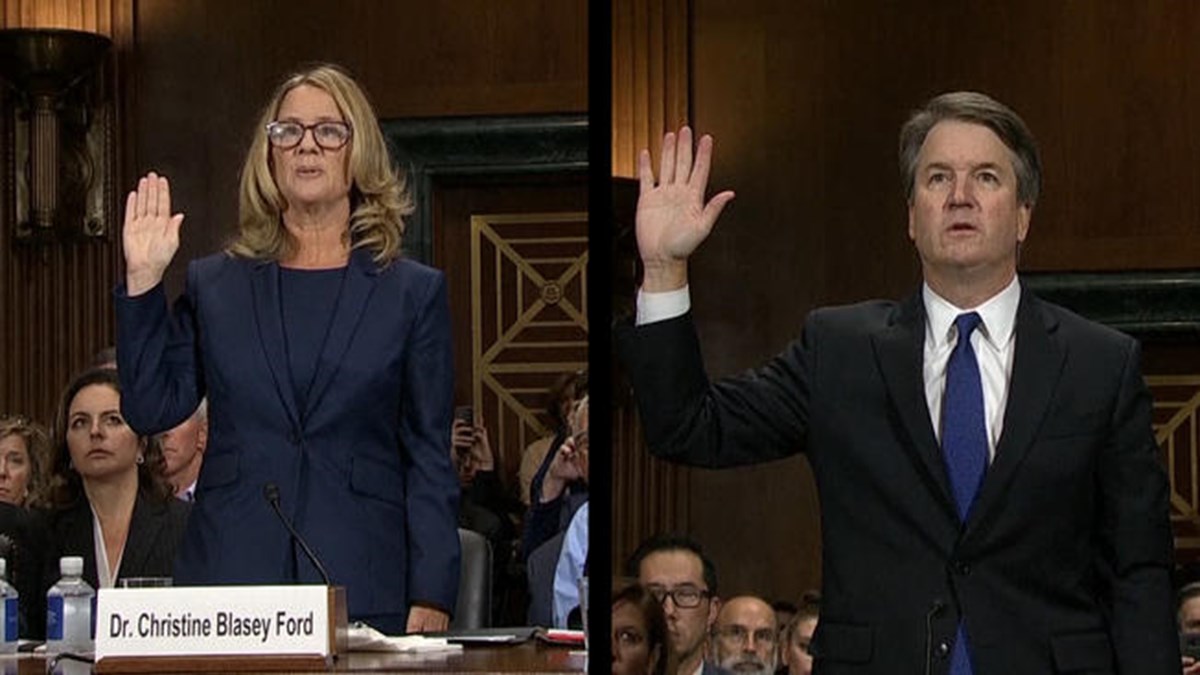After talking with many students who watched the Christine Blasey Ford and Brett Kavanaugh testimonies in their high school classes, I’ve realized that students across the country have witnessed an event that will most likely be the defining event of their high school careers, but not for the reason most of them suspect.
I will not attempt to assign merit to either one of the testimonies here; most people have made up their minds at this point (if they hadn’t done so before the testimonies began). What I am concerned about here is how American students witnessed this event.
At its core, the hearing was a manifestation of divergent cultural stances in the United States. To say this is not to discount Dr. Ford’s reasons for coming forward; allegations of sexual misconduct must be taken seriously. However, justice was not the intended end of the Senate hearings. If it was, then the means appeared ill-suited. The process, along with being divided between ideologies, was an overtly political one.
In coming forward to offer testimony, Dr. Ford noted that it was her civic duty. In defending himself, Judge Kavanaugh failed to offer answers to questions, undoubtedly attempting to place himself in a position to move forward quickly in the confirmation process. So, where do students fit into all of this?
In the culture war, the US Supreme Court is the main battleground.
Students, if they haven’t learned this already, have now been given full encouragement to view and assess cultural disagreements only in terms of their political value. What has transpired in Washington, DC, is not a trial, nor is it a job interview as so purported by members of the Senate Judiciary Committee. Rather, it is a politically calculated attempt to swing the balance of power via the Supreme Court, where the appointment of a ninth justice will shift its ideological lean, a result that will have a major impact on future American policy.
In the culture war, the US Supreme Court is the main battleground. As such, the legal precedent surrounding America’s most culturally divisive issues hangs in the balance.
Today’s political tribalism has propelled activism and led students to believe that current societal disputes require allowing politics to pervade every aspect of daily life, a notion that invites government into a central role within American families.
No longer is dialogue promoted at the community level. No longer are students having discussions concerning the proper role of government...
American society today decries partisanship yet promotes it in action. Cultural discord has promoted gaining access to the levers of power as a crucial component for molding the United States into “what it ought to be (insert political beliefs here).”
No longer is dialogue promoted at the community level. No longer are students having discussions concerning the proper role of government; instead, conversations are focusing on what interventions the government must make while losing sight of the fact that the question, “What can we do as a community?” might be better suited towards finding ways of closing the divide and promoting cooperation and understanding.
Within our communities, students have the power to make positive change. Law, while encouraging certain behaviors and de-legitimizing others, will not lead individuals to bridge the divide in their communities and the country at-large, nor will it fix the widening political divide.
As long as American society looks to the courts as an outlet to disseminate worldviews and solidify cultural stances, it will forever block itself from having meaningful conversations while at the same time encouraging the government’s perpetual involvement in all social and commercial affairs.
The hearings represent a pivotal aspect of students’ high school careers because they are at risk of learning that the only way to make positive change is by scrambling for political power. If left unchecked, this will lead students to further promote division and partisanship, not work towards eliminating its stranglehold on society.

